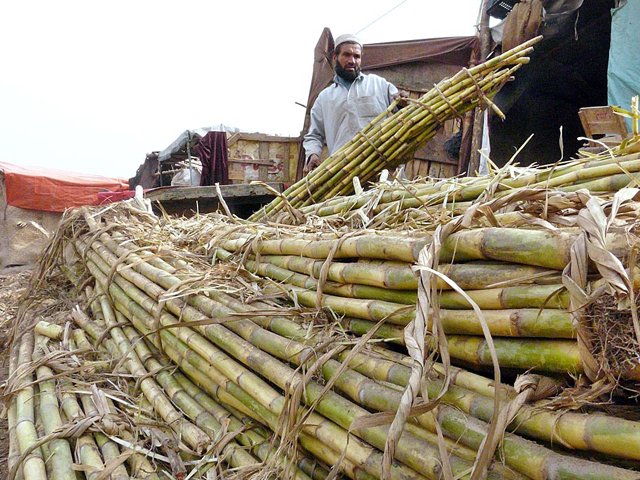ISLAMABAD: The federal cabinet on Tuesday granted three more weeks to the inquiry commission for submitting its forensic report on the recent sugar crisis in the country.
The cabinet meeting, chaired by Prime Minister Imran Khan, gave the approval as the commission sought more time to complete its investigation.
The government and the Pakistan Muslim League-Nawaz (PML-N) had bickered over delay in the report as party President Shehbaz Sharif accused Prime Minister Imran Khan of dragging feet on the forensic report of the commission, describing it as proof of the premier’s “admission of guilt”.
The government, however, had emphatically stated that the forensic report would not only be completed but made public just like the earlier report.
Through a tweet on April 25 – when the commission had to submit its forensic report to the federal government – Special Assistant to the Prime Minister (SAPM) on Accountability and Interior Shahzad Akbar said that the commission had asked for an extension and the federal cabinet would consider their request on April 28.
On April 4, Premier Imran had directed to make the reports of the sugar and wheat crises public, and to further expand the findings, he had directed the committee on sugar to conduct forensic analysis of its findings.
Govt, opposition bicker over wheat, sugar report
The prime minister had constituted two high-powered committees headed by Federal Investigation Agency (FIA) Director General Wajid Zia to probe into circumstances that led to the wheat and flour controversy and the reasons behind the increase in sugar prices in the country.
Shocking as it may seem, the leaders of the Pakistan Tehreek-e-Insaf (PTI) were among those who benefited the most from the sugar crisis in the country. According to the report, former PTI secretary general Jahangir Khan Tareen and brother of ex-minister for National Food Security Makhdoom Khusro Bakhtiar were the major beneficiaries of the sugar crisis.
In the meeting on Tuesday, the prime minister told his cabinet members that the government is planning to offer state-owned land located in major cities of the country to the overseas Pakistanis in order to generate the much-needed financial resources to cope with the virus impact.
The premier also directed all ministries to expedite setting up of a think tank comprising area experts and professionals in order to bring about qualitative improvement in the overall performance and output of the ministries.
Imran approved Rs75 billion for labourers in the first phase of the Rs200 billion relief package and directed his special assistant for social welfare and the industries minister to devise a comprehensive mechanism for providing relief to the labourers.
On April 27, Hammad Azhar, the minister for industries and production, said the government decided to waive six-month electricity and gas bills of small traders in order to help them cope with the economic slump caused by the coronavirus-induced lockdown.
“The government is trying to address economic woes of the business community, especially small traders, and their electricity bills will be waived for the next six months,” the minister had said on the heels of a meeting of the Economic Coordination Committee (ECC) of the Cabinet on Monday where the government had approved a financial support package worth Rs81 billion for small businesses.
Among other agenda items, the cabinet meeting chaired by the prime minister approved Assistance Package for Covid-19 related healthcare workers. Under it, any healthcare worker, who dies while performing duties related to coronavirus, would be entitled to the same package as is applicable to the government servants in cases of security-related deaths contained in the Shuhada Package. The package, however, will be applicable in the domain of Islamabad Capital Territory, Azad Jammu and Kashmir and Gilgit Baltistan.
The cabinet approved modalities for export of chloroquine by importers in possession of the raw material. During the cabinet meeting, the prime minister issued orders to ban the export of all edible items in the wake of the current coronavirus situation. The decision would be reviewed after two weeks.
In addition, the cabinet approved allocating grant-in-aid for journalists and journalistic bodies, especially the press clubs, and tasked the information minister and SAPM on information to finalise the standard operating procedures for disbursement of the grant to the deserving journalists and journalistic bodies.
Meanwhile, the cabinet ratified the recommendations of the Cabinet Committee on Legislative Cases made in its meeting held on April 27, 2020. The finance adviser briefed the cabinet about the progress made in regulating affairs of the Competition Commission of Pakistan (CCP). Subsequently, the cabinet approved appointment of Shaista Bano Gillani as the acting chairperson of the CCP.
Another important decision that the cabinet approved in principle was the Netting of Financial Contracts Bill, 2020.
The bill aims at removing any uncertainty in enforcing the netting rights in case of a termination event, bankruptcy, insolvency proceedings and limiting the power of the liquidators to prevent any cherry-picking of qualified financial contracts/transactions.
The cabinet also approved a proposal for making all companies supplying electricity or gas through distribution or transmission lines members of the Credit Bureau and furnishing information in accordance with the Credit Bureau Act, 2015.
The cabinet also approved restructuring of the Board of Directors of Pak-Arab Refinery Limited (Parco) and okayed Aftab Hussain, Sindh, Abdul Hadi Shah, Khyber-Pakhtunkhwa, and Bushra Naz Malik, Punjab/women representative, as Parco board members.
In the meeting, SAPM on Health Dr Zafar Mirza briefed the cabinet about latest Covid-19 situation in the country.

